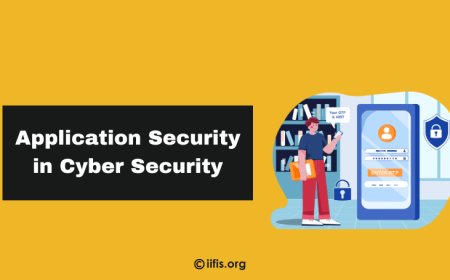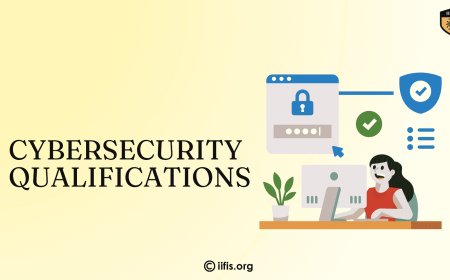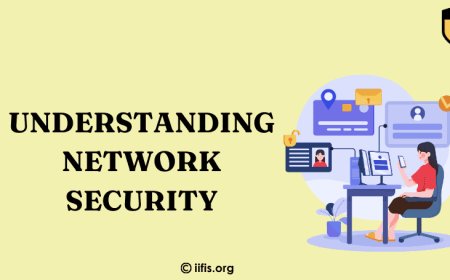Why Cybersecurity Certification Matters
Learn why cybersecurity certification matters for validating expertise, enhancing career opportunities, and staying competitive in the growing field of cyber defense and data security.
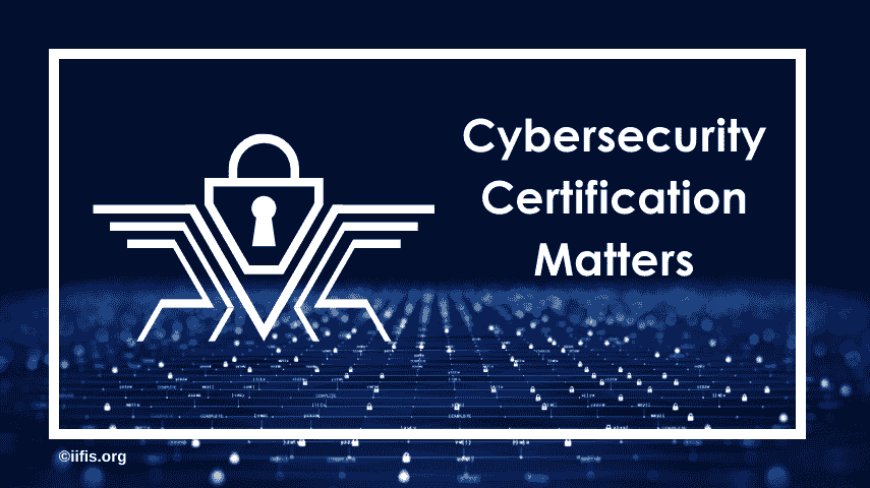
In today’s digital world, where cyber threats are constantly evolving, protecting sensitive data has never been more crucial. Businesses and individuals alike face increasing risks from hackers, malware, and data breaches. As a result, the demand for skilled cybersecurity professionals is at an all-time high. Earning a cybersecurity certification not only validates your expertise in safeguarding systems but also enhances your career prospects. It demonstrates your commitment to staying ahead of the latest threats, ensuring you have the knowledge and skills to protect against potential attacks. In this blog, we’ll explore why obtaining a cybersecurity certification is essential for anyone looking to excel in this critical field.
The Growing Demand for Cybersecurity Professionals
-
Increasing Cybersecurity Threats
The rise of cyberattacks, data breaches, and the constant evolution of cyber threats have put organizations at significant risk. From ransomware attacks to sophisticated phishing schemes, the frequency and complexity of these threats continue to grow, making cybersecurity a critical priority for businesses and governments. -
Skill Shortages in Cybersecurity
Despite the increasing need for protection, there is a notable shortage of qualified professionals in the cybersecurity field. Many organizations struggle to find skilled experts who can effectively safeguard their systems, leaving a significant gap in the market. -
Opportunities in Cybersecurity Careers
This skills gap creates vast opportunities for individuals with cybersecurity certifications. As companies prioritize securing their networks and data, certified professionals are in high demand, offering strong career prospects, job security, and potential for growth in this rapidly expanding industry.
What is a Cybersecurity Certification?
A cybersecurity certification is a credential that validates an individual's knowledge, skills, and expertise in protecting systems, networks, and data from cyber threats. These certifications demonstrate that a professional is qualified to handle specific security tasks and can help organizations safeguard their digital assets. Earning a certification typically involves passing an exam that tests an individual’s competency in various cybersecurity practices and principles.
Types of Certifications
Cybersecurity certifications are available at different levels based on an individual’s experience and expertise
-
Entry-level: For beginners looking to enter the cybersecurity field.
-
Mid-level: For professionals with some experience, aiming to deepen their knowledge.
-
Advanced: For seasoned experts, focusing on specialized and high-level skills.
Examples of Popular Certifications
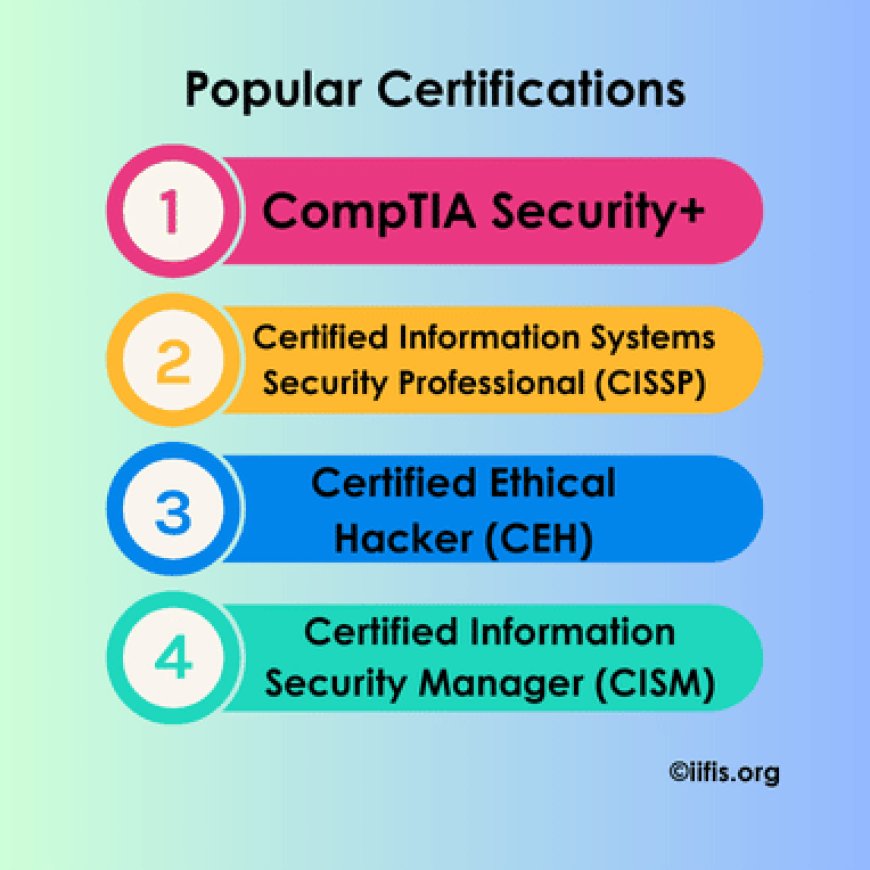
-
CompTIA Security+: A well-known entry-level certification covering basic security practices.
-
Certified Information Systems Security Professional (CISSP): A globally recognized mid-level to advanced certification focused on security leadership and management.
-
Certified Ethical Hacker (CEH): A certification for professionals skilled in identifying and addressing vulnerabilities through ethical hacking techniques.
-
Certified Information Security Manager (CISM): An advanced certification for managing and overseeing an organization’s information security program.
Why Cybersecurity Certification Matters
-
Validating Knowledge and Skills
Cyber Security certifications formally recognize a professional’s expertise in key areas such as network security, ethical hacking, and risk management. These certifications often include hands-on labs and rigorous exams, ensuring that certified individuals not only understand theoretical concepts but can also apply them in real-world scenarios. -
Career Advancement and Salary Benefits
Certified cybersecurity professionals tend to earn higher salaries and enjoy better job prospects compared to their non-certified peers. Certifications open doors to new opportunities and can play a crucial role in career advancement, helping individuals secure promotions and leadership roles within their organizations. -
Gaining Employer Trust
Certifications build credibility and trust with employers and clients. Companies prefer to hire certified professionals for sensitive cybersecurity roles because it guarantees a certain level of expertise and ensures that these individuals are equipped to handle critical security challenges. -
Keeping Up with Industry Standards
The cybersecurity landscape is constantly evolving, with new technologies, threats, and best practices emerging regularly. Certifications help professionals stay updated with the latest industry standards, and continuous learning and recertification ensure that they remain current and effective in the ever-changing cybersecurity field.
Top Cybersecurity Certifications to Consider
-
Entry-Level Certifications
-
CompTIA Security+: Ideal for those starting in cybersecurity, covering foundational concepts in security, network management, and risk mitigation.
-
Certified Ethical Hacker (CEH): Perfect for individuals interested in ethical hacking and penetration testing, teaching how to identify and exploit vulnerabilities.
-
Mid-Level Certifications
-
Certified Information Security Manager (CISM): Suited for professionals aspiring to management roles, focusing on security management, governance, and risk.
-
Certified Information Systems Auditor (CISA): Designed for those specializing in auditing, IT governance, and control assurance, emphasizing security audit principles.
-
Advanced Certifications
-
Certified Information Systems Security Professional (CISSP): A highly regarded certification for experienced professionals aiming for leadership roles in security strategy and architecture.
-
Offensive Security Certified Professional (OSCP): Focuses on deep technical expertise in penetration testing, ideal for professionals looking to master offensive security techniques.
The Role of Cybersecurity Certifications in Compliance and Legal Requirements
-
Meeting Industry Regulations
Certifications help businesses ensure that their cybersecurity practices align with industry regulations such as GDPR, HIPAA, and PCI-DSS. Certified professionals are trained to implement security measures that meet these strict standards, ensuring compliance and avoiding costly penalties. -
Demonstrating Competence in Security Audits
During audits and compliance checks, companies prefer hiring certified professionals as it demonstrates a clear level of competence. Certifications signal to auditors that the business has skilled personnel capable of maintaining high security standards. -
Reducing Liability
Certifications help minimize organizational risks and reduce liability in case of data breaches. Certified professionals are better equipped to put effective security measures in place, which can protect businesses from legal consequences following cyber incidents.
Challenges and Misconceptions About Cybersecurity Certifications
-
Do Certifications Guarantee Job Success?
While certifications are valuable, they don’t guarantee job success on their own. Practical experience and hands-on skills are equally critical for excelling in cybersecurity roles. Certifications should be seen as one component of a broader skill set. -
Cost of Certifications
Cybersecurity certifications can be costly, and it’s important to weigh these expenses against the potential career benefits, such as increased job prospects and salary. Many professionals view certification as an investment in long-term career growth. -
Continuous Learning Requirement
The field of cybersecurity is constantly evolving, requiring professionals to stay updated through continuous learning. Certifications often need to be renewed periodically, and ongoing education is necessary to stay current with new technologies, threats, and best practices.
How to Choose the Right Cybersecurity Certification
-
Career Goals and Interests
When selecting a certification, it’s important to align it with your career path and personal interests. For example, if you’re interested in ethical hacking, the Certified Ethical Hacker (CEH) may be a good fit, whereas a Security Analyst might benefit more from CompTIA Security+ or CISSP. Consider what role you want to pursue—whether it’s penetration testing, risk management, or network security—and choose accordingly. -
Level of Experience
Your level of experience plays a key role in determining the right certification. Entry-level professionals may start with certifications like CompTIA Security+, while those with mid-level experience may opt for CISM or CISA. Senior-level professionals aiming for leadership roles might consider advanced certifications like CISSP or OSCP. -
Researching Certification Bodies
Ensure the certification you pursue is from a reputable and recognized organization. Leading bodies such as CompTIA, ISC², and ISACA offer well-established, globally recognized certifications that can boost your credibility and job prospects. Research the organization’s reputation and the industry’s demand for their certifications before making a decision.
cybersecurity certifications are more critical than ever. They validate essential skills, ensure professionals stay current with evolving security practices, and help businesses meet compliance standards. Certifications also offer a clear path for career advancement and are highly valued by employers looking to fill the cybersecurity skills gap.
For those looking to excel in this field, pursuing a cybersecurity certification is a smart investment in your future. Explore programs through reputable organizations like IIFIS (International Institute of Future Information Security) to start advancing your career and contributing to a more secure digital world.



